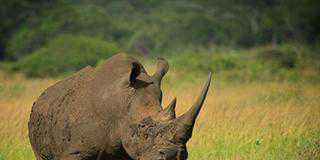In SA, Fairtrade is run by Fairtrade Label South Africa (FLSA). According to the company, with the theme ‘Releasing Africa’s Potential’ Fairtrade Week 2013 aims to inspire SA consumers, businesses, institutions and organisations alike, and to recognise the immense potential Africa has to be more equal and sustainable through Fairtrade. Globally, Fairtrade benefits more than 1,2 million farmers and farm workers in 66 countries, with over half of these located in Africa.
There are 56 Fairtrade farmer and farm worker organisations in SA, representing more than 12 500 small farmers and farm workers.

Illustration courtesy of Fairtrade Label South Africa
Sales of Fairtrade products in SA amount to over R70 million/year and consumers can buy Fairtrade-certified wine, coffee, tea and chocolate, with sales set to increase in the next few years as the number of Fairtrade products (sugar, fruit and cotton) in shops grows.
“Fairtrade in South Africa has gone from strength to strength with fast growing sales of Fairtrade products, as well as being honoured as the pioneer of Fairtrade in the developing world, and becoming the largest producing country of Fairtrade wine globally. Working with leading brands like Woolworths, Pick n Pay, Cadbury, CIRO and PUMA has also been a big milestone in establishing the market for Fairtrade in South Africa,” said FLSA executive director Boudewijn Goossens.
“We are ecstatic at the way businesses, retailers and consumers have embraced Fairtrade locally. It’s far exceeded our expectations. Most importantly, the growth of the SA market yields substantial benefits for the farming communities of Africa and other developing regions. This is only the beginning, there is still so much more to achieve.”
Faitrade actively tackles poverty and empowers small-scale farmers and farm workers by ensuring better trading, working and living conditions and by providing additional income for community development projects.
Fairtrade also supports sustainable production and protection of the environment.
Certified farms and traders are audited annually by an independent certification body. This assures consumers that a product carrying the Fairtrade label has met the Fairtrade standards.
Fairtrade Week 2013, which will run from 25 February to 3 March, will see a number of activities on the University of Cape Town’s campus.
For more information, visit Fairtrade Label South Africa’s Facebook Page http://www.facebook.com/FairtradeSA or follow FLSA on Twitter http://twitter.com/FairtradeSA. Website: www.fairtradesa.org













